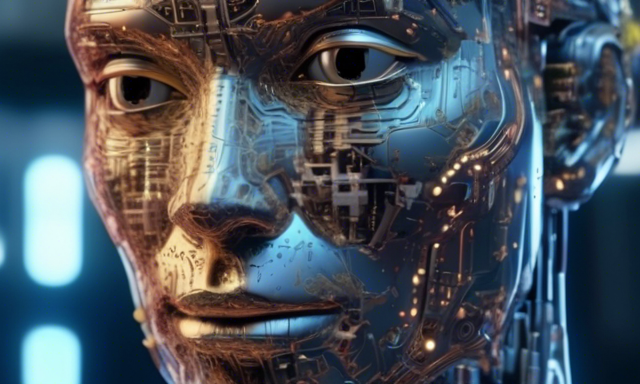Democratizing AI: The Battle Between Open and Closed-Source Models 🤖
In the realm of artificial intelligence (AI), a fierce battle is ongoing between companies that advocate for keeping their advanced software’s datasets and algorithms private and those that push for transparency by allowing public access to their sophisticated AI models. This clash represents the conflict between open-source and closed-source AI.
The Benefits and Risks of Open vs. Closed-Source AI 🛡️
– Closed-source AI:
– Involves proprietary models, datasets, and algorithms kept confidential
– Examples include ChatGPT, Google’s Gemini, and Anthropic’s Claude
– Promotes protection of intellectual property but poses risks to public trust and accountability
– Slows down innovation and creates dependency on a single platform
– Open-source AI:
– Encourages transparency and community collaboration
– Enables smaller organizations and individuals to participate in AI development
– Facilitates scrutiny of biases and vulnerabilities
– Lowers the barrier to entry for small and medium-sized enterprises
The Ethical Implications of Open-Source AI 💡
Open-source AI models offer various benefits but come with ethical concerns including:
– Quality control issues due to open access
– Increased vulnerability to cyberattacks
– Potential misuse for malicious purposes
– Lack of standardized regulations
Meta’s Role as an Open-Source AI Pioneer 🌟
– Meta, the parent company of Facebook, has taken a significant step towards open-source AI by releasing the Llama 3.1 405B model
– Llama 3.1 405B is a large language model capable of generating human language text in multiple languages
– While not fully open due to the undisclosed dataset used for training, it levels the playing field for researchers and startups
Shaping the Future of AI: Towards Democratization 🌐
To democratize AI, key pillars need to be established:
– Governance: Implementing regulatory frameworks for ethical AI development
– Accessibility: Providing affordable resources for developers and users
– Openness: Encouraging transparency through open-source datasets and algorithms
– Shared responsibility: Government, industry, academia, and the public must collaborate to ensure ethical AI practices
– Advocating for ethical AI policies, staying informed, and supporting open-source initiatives are vital steps towards a more inclusive AI future
Challenges and Opportunities in Open-Source AI 🌈
Several questions remain regarding open-source AI:
– Balancing intellectual property protection with innovation
– Addressing ethical concerns and minimizing risks
– Safeguarding against potential misuse and exploitation
– The future of AI lies in our hands, whether it becomes a tool for inclusion and progress or exclusion and control depends on how we navigate these challenges and opportunities. 🚀
Hot Take: Embracing Open-Source AI for a More Inclusive Future 🌍
In a world where AI plays an increasingly crucial role, the choice between open-source and closed-source models carries significant implications. By championing transparency, collaboration, and ethical practices in AI development, we can shape a future where AI benefits all and serves the greater good. Embracing open-source AI is a step towards democratizing this transformative technology and ensuring it empowers rather than exploits. Together, we can pave the way for a more inclusive and equitable AI landscape. 🤖✨





 By
By
 By
By
 By
By

